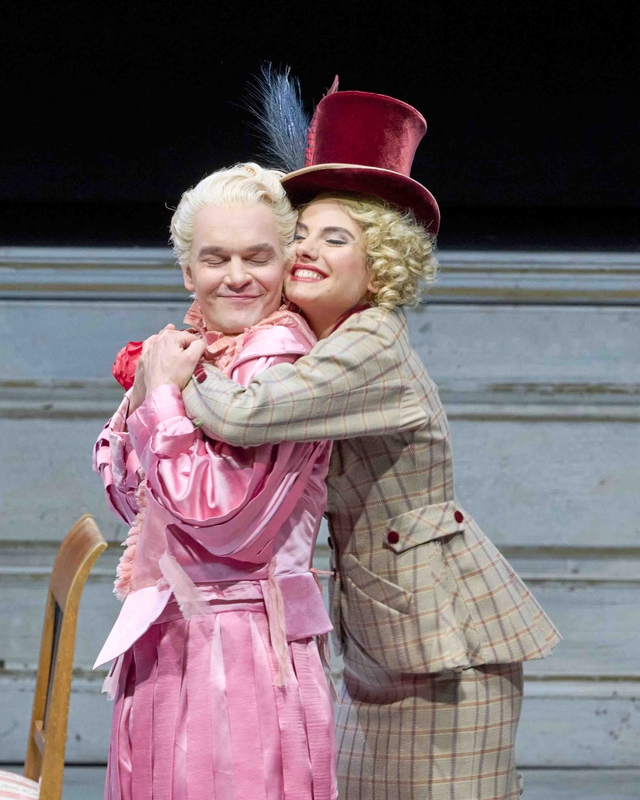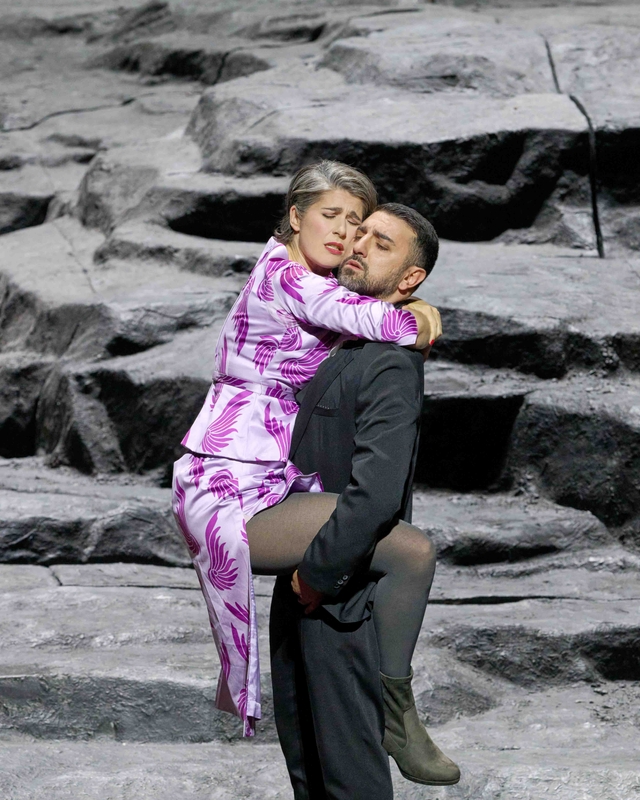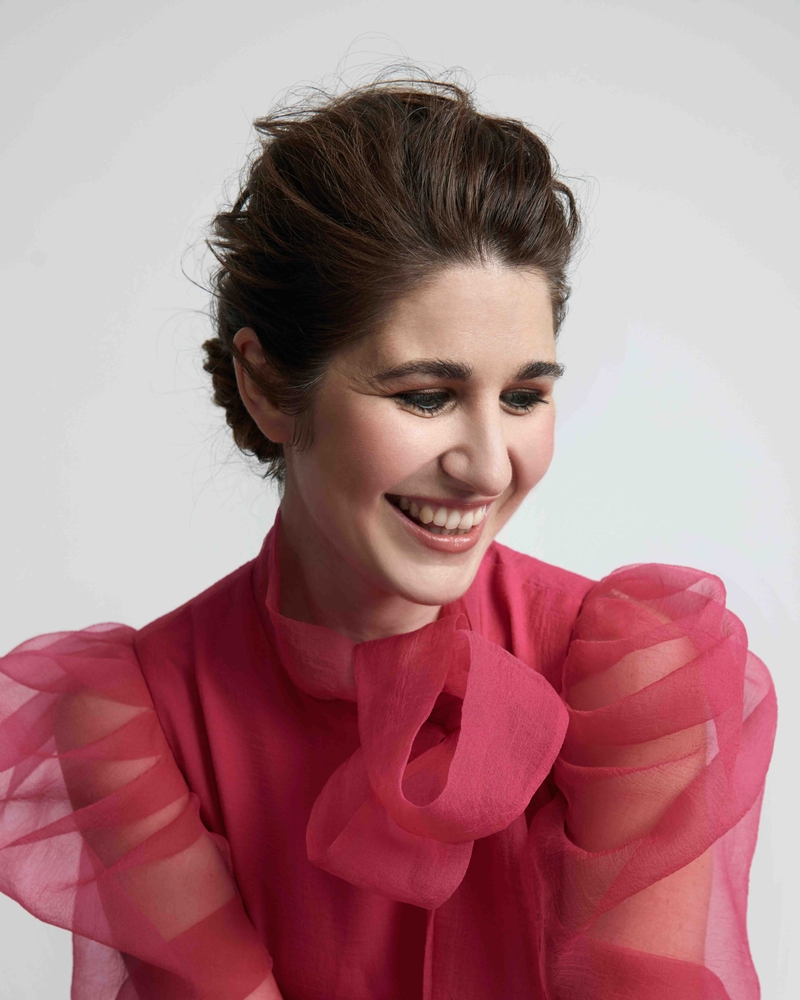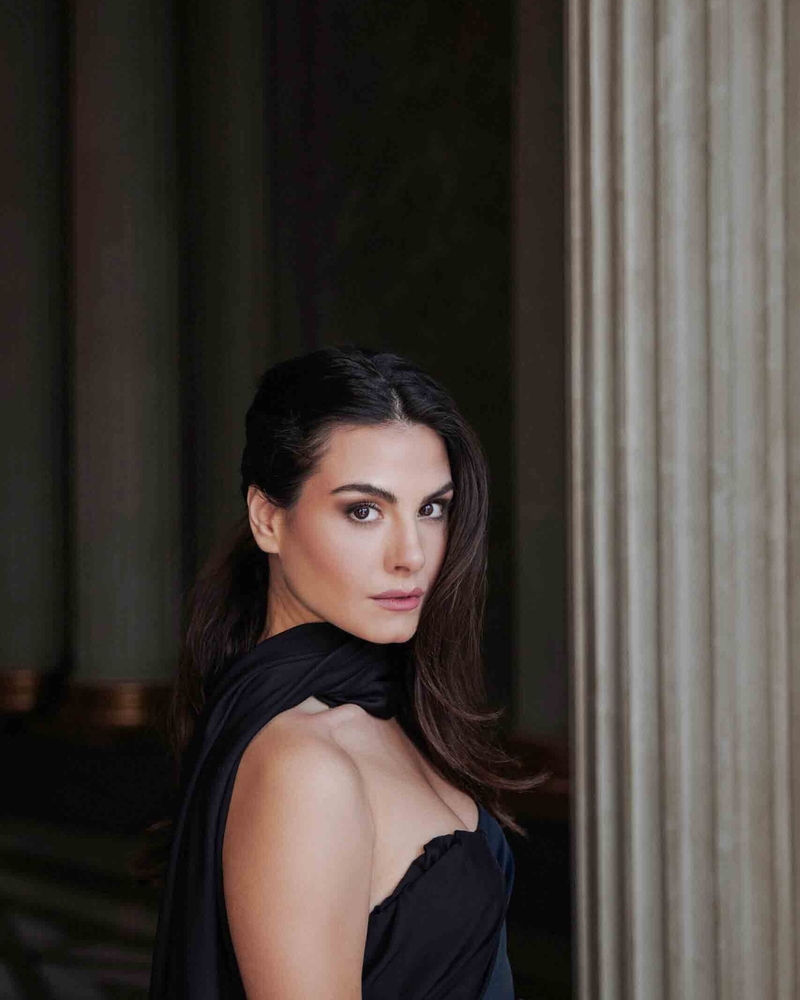Coloratura miracle & operatic death
Interview |

What is it like to make your international role debut, i.e. to sing a part in front of an audience for the very first time? Are you a little more nervous? And in the case of Offenbach's Les Contes d'Hoffmann, do you have to know the dark and obscure worlds of German Romanticism as a singer? These are questions that the two sopranos Nicole Car and Serena Sáenz address in an interview with Oliver Láng. Both singers are making important role debuts in the revival of Les Contes d'Hoffmann on December 13: Car as Antonia, Sáenz as Olympia and Giulietta. In Andrei Şerban's captivatingly fantastic production of Hoffmann, they are now appearing together on the Staatsoper stage for the first time.
Antonia, Olympia and Giulietta are role debuts for you. How do you approach such a completely new role? Is the text at the beginning of your studies? A CD recording? Or is it taking a look at the sheet music?
Nicole Car I start with the text and the plot. I want to know where my characters come from, what journey they are on, where they are going. This knowledge is crucial for me before I get musically involved in a role. In the case of Antonia: it's a fantastic role for me because French is my second language. I therefore understand the many nuances that the text contains and can work them out accordingly. Another important step in the studying process for me is to listen to older recordings. I want to know what has been done before - and how.
Serena Sáenz For me, the first approach is through the music: I listen to one or two recordings that I particularly appreciate, then I reach for the score - and at the same time, I study the libretto. Only then do I start to work on the details of the role with a pianist. But it's all such beautiful work, especially in the case of Contes d'Hoffmann! Because it's one of my favorite operas! The music is so great! Oh, I would love to be a tenor so I could sing the title role! (laughs)
As we all know, Olympia is an automaton. In this respect, what is usually unavoidable in the theater, namely filling a character with life, must be put aside in this case.
s That's right. That's why I think it's very appropriate to put a little "choreography" behind the figure, which even emphasises the technical aspects. After all, Olympia is a robot and not a human being, and too personal a language of movement would obscure that. Musically, the famous aria also has something incredibly technical and mathematical about it. Offenbach wanted a coloratura jewel here, wanted to take vocal brilliance to the extreme and create an aura of the impossible, in the sense of: only an automaton can produce such sounds! Apart from that: if there are very clear scenic structural elements here that I can orient myself by and even stop at, that helps me when singing. Because you really do have enough to do vocally in the aria!
The third major female role is Antonia, an artist. This makes for an exciting double act: a female singer plays a female singer.
c And that's what makes the whole thing so interesting! We have more than just an unfulfilled love story here, there are many other layers: Antonia is not allowed to sing because by singing, she will die. This means that all the time she is fighting against something that she loves and needs/craves. But if she gives in to the longing, it means her end. So, it is literally a matter of life and death. Surrealism, fantasy and hard realism come together here in a remarkable mixture. But it is more so than in many other operas. Because in a figurative sense, we singers are also always concerned with existence. Not physically, but as artists. Because our artistic existence depends on two tiny little muscles, the vocal muscles, and that is more than just a professional existence. I think there is always a fear in all of us that one day these muscles might not work. Antonia exhausts herself with the very first line she sings - and yet she carries on. But this also makes her the image of a singer who sacrifices herself for her profession, someone who can't help it, who is called to it. Although she knows what would be sensible, she simply can't help herself and has to sing - and therefore die.
Antonia is ruined by art. This can be read - albeit less drastically and more generally - as an image of the excessive demands of the unconditional in art. Do you have to set yourself limits in order not to burn out from the intensity?
s I would say it's like cooking. If you use too much of one ingredient, you get a stomach ache. Just like in life, just like in art. If we deal too much and one-sidedly only with the stage characters, their questions and philosophies, we lose our sense of reality. So, if a person is always looking for something more, wants to immerse themselves even deeper in the stage world and is looking for a meaning that they miss in real life, then on the one hand it's wonderful. But you can't spend your whole life on an LSD trip, otherwise you lose touch with reality. Therefore: intensive theater life: yes! But in moderation. And never forget to return to real life. And do that every day!
c This relates to the topic of mental health - and that is a very important issue in our profession too. For each of us, there are times when there is a lot to do, sometimes too much. In such cases, we need to focus on the essentials. After all, we shouldn't forget that artists don't just have one project, they also live in different time zones: while you are currently doing an opera production, you are preparing one or two more and talking about additional projects in the future. It's clear that artists sometimes feel overwhelmed. This has probably always been the case, it's just that people didn't talk about it much or at all in the past. Fortunately, it has become an issue nowadays. So, we can talk about strategies and how to deal with the pressure, or even admit that we are sometimes anxious. Let's not forget everything that shoots through our body while performing and affects our mental health: adrenaline, dopamine, and so on. The most important thing is to always ground yourself.
What does that mean in your case?
c Very simple things. For example, I take the dog for a walk, wear headphones in between and listen to a podcast or something else instead of an opera in order to tune out the daily grind. I meditate. And I know that I'll come home to my child and my husband at the end of the day... It's important to always remember one thing: yes, I am an artist! But that's not the only thing that defines me.
s My family helps me a lot! They don't treat me like "oh, an opera singer", but simply as Serena. That helps a lot! (laughs) I hear things like: "have you done the dishes yet?" So, just normal everyday life with all the routines that affect each of us. It's sometimes nice to think about cooking, doing the dishes and putting the washing machine away and not about an opera role or the next performance. Many people only see the extraordinary side of singers' lives and think that everything is extraordinary with us. But it's not! A lot of things are completely ordinary. And to be honest: I like being a completely normal person.



